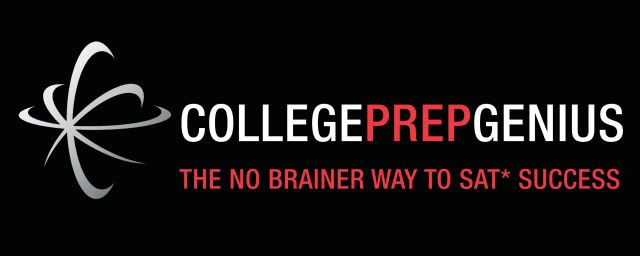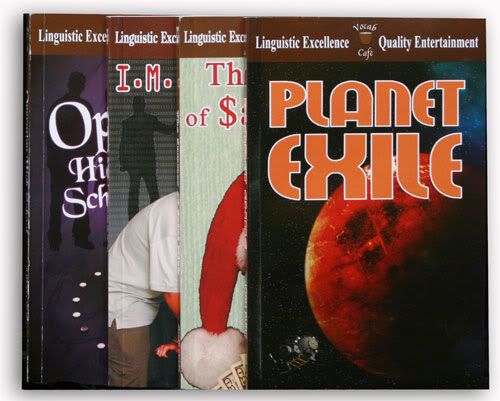Thursday, November 10, 2011
TOS Crew: College Prep Genius and VocabCafe books
Last year our family reviewed Master the SAT Class from College Prep Genius (click link to read the review). Members of this year's Crew were given the opportunity to review the newly revised SAT course, or the new vocabulary-building fiction series VocabCafe. Our family received a set of VocabCafe books to review.
College Prep Genius was put together by a family whose children got a "free ride" to college (i.e. scholarships) through high test scores. Click on the TOS Crew link below to read this year's Crew impressions of the SAT preparation course.
Anyhow, as I mentioned, our family reviewed the new vocabulary-building VocabCafe series of teen-focused fiction.
Great idea...
I love the idea of adding interest to the task of building vocabulary. Introducing new words, used in context, makes them better able to stick, somehow. Learning new words while reading a story, well, that seems like the best of all worlds! ...Much more interesting than plain ol' flash card drill.
Each of the four books in the series, Planet Exile, Operation High School, I.M. for Murder, and The Summer of St. Nick, contain 300 SAT words. The words are used in the story, set off by bold print, and defined in footnotes at the bottom of the page where the word first appears. At the end of each chapter is a list of SAT words used in that chapter. A glossary of all 300 SAT words wraps up each book.
...uneven execution
While I think the idea is good, I was a little disappointed with the actual books. They could use some editing, for one thing. There are typos here and there, and the dialog in Operation High School is in a weird, distracting format that both Middlest and I found annoying. In addition, while the SAT words are used in context, fitting the definitions given, I kept getting the feeling that they weren't being used quite right in a number of instances. If you are a person who delights in words, in nuances, in shades of meaning, in selecting just exactly the right word, you probably know what I'm getting at. A word might fit a specific definition, without fitting right in a sentence (it might work better in a different sentence, or a different word might be more appropriate).
It's sort of like the difference between teaching to a test, where you memorize answers, and learning for understanding. I suppose these books will suit their purpose if they help readers memorize SAT words and canned definitions. They will not, however (in my opinion) lead to a more elegant use of language.
In addition, typos, misspellings, and just plain wrong words are really out of place in a book used for teaching an area of language arts. (One character shuttered in at least two scenes in the book, for example, when the context led me to believe that the author meant shuddered.)
Relatively clean content
One of the publisher's selling points is that the content of these vocabulary-building novels is clean, even though the stories have been written to interest teens. They're probably pretty tame if you measure by the standards of worldly teens, while possibly not suited to Christian homeschoolers.
All the characters attend institutional school. They're interested in the opposite sex (the boys dwell a lot on specific members of the opposite sex, though there's nothing steamy or even seamy). A lot of evasion, even downright deceit, goes on in the interest of furthering the story. A couple of the stories are somewhat unrealistic (not counting Planet Exile, which is science fiction) -- I have a hard time believing that adults would stand around with their hands in their pockets while a boy manipulates the legal system to gain possession of a house, for example, and I'm fairly certain that the CIA doesn't employ students fresh out of high school, as Operation High School implies.
Middlest read three of the books and pronounced them "okay, for the most part." She was annoyed with typos and the peculiar formatting found in Operation High School, as mentioned above. She liked Planet Exile the best of the bunch. Since she reads on a college level, she only learned one new word in the reading of the three books, and commented that some of the SAT words were used out of context.
I am very glad that I pre-read the books before giving them to Middlest. I.M. for Murder made me physically ill in the reading -- I almost lost my lunch. Not only does it have the torture and murder of a family pet (thankfully at least this is only implied by the main character finding the headless body of his mother's cat, and no more detail than that), but there are also scenes where the hero and his friends are held and tormented by the serial killer they played an Internet trick on. It's mild stuff by today's standards -- someone who watched any of the CSI television shows on a regular basis would hardly bat an eyelid. But it was too much for me, and I didn't want Middlest filling her brain with such images, so I told her not to read I.M for Murder, and when I told her my reasons, she was glad to comply.
Vocabulary building, anyone?
I guess I'd say in conclusion that I would not recommend this series of books to homeschooling friends with similar values to ours. They might be suited to teens in Christian schools who watch more television than we do (let's face it, we used to watch CSI but haven't for a couple of years now -- our viewing is pretty tame, things like Food Network, Discovery Channel, and the occasional episode of Monk). If they are already reading such authors as G.K. Chesterton or Dorothy Sayers, they're probably beyond the level of this series.
Pricing and availability
The four books in the VocabCafe series are available individually for $12.95 at the College Prep Genius website, or as a bundle for $38.85
Read more TOS Crew reviews of College Prep Genius products at this link.
Disclaimer: Our family received a set of four VocabCafe books for review purposes. No additional compensation was involved.
Subscribe to:
Post Comments (Atom)


No comments:
Post a Comment